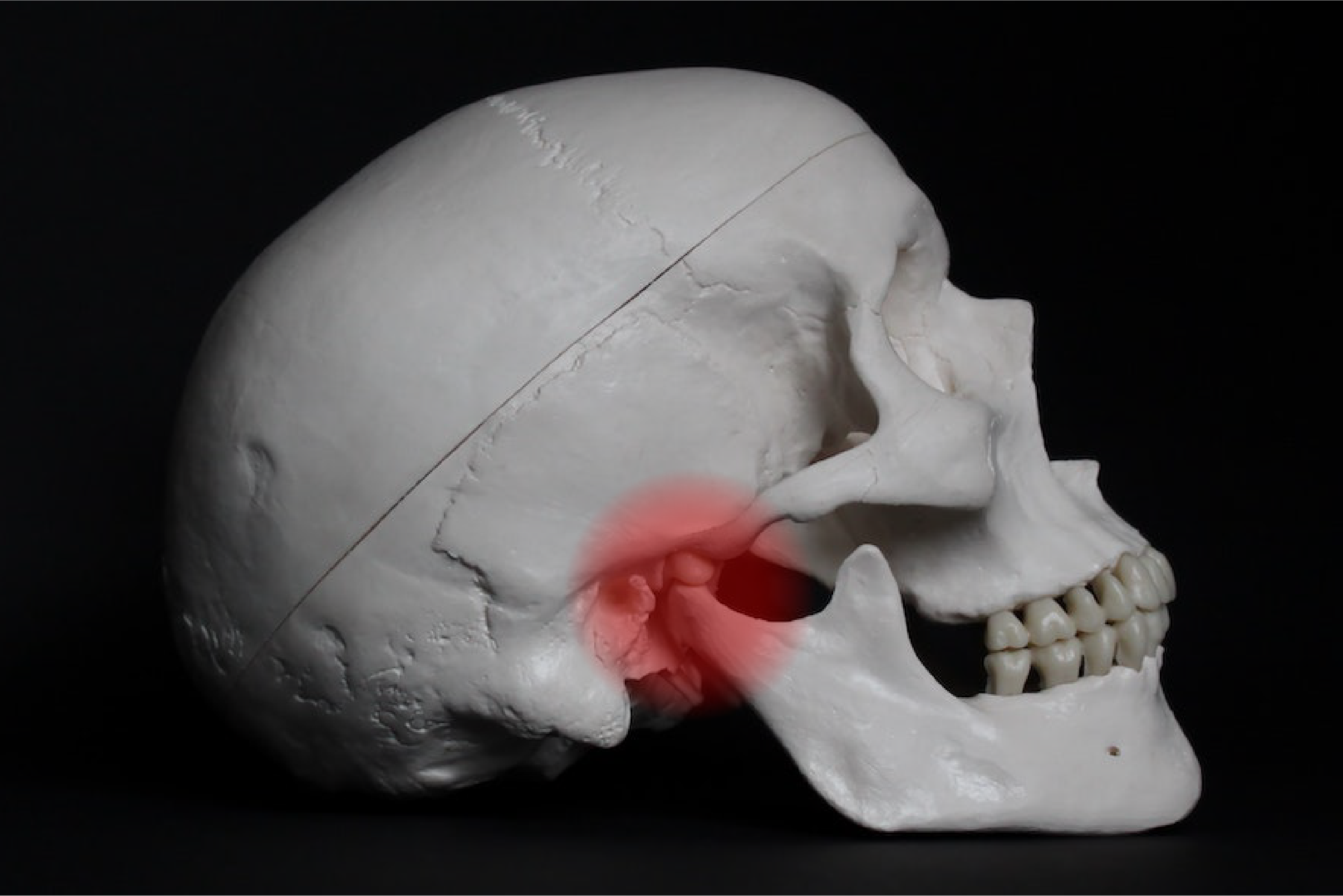Most people think that toothaches and cavities go together. While they often do, some cavities hurt very little or not at all—at first. Likewise, a tooth can experience pain without a cavity.
Any cavity, whether it hurts a little, a lot, or not at all, should be taken seriously and fixed as soon as possible. Cavities do not go away by themselves. If they are not treated, they will go on to cause much more serious dental problems.
What Causes a Cavity?
When bacteria from food and drink is not properly cleaned by brushing and flossing, it collects on the teeth and forms a sticky substance called plaque. Plaque is very acidic and allowing it to build up can cause cavities, also called dental caries. Even people who do a good job of brushing and flossing can get cavities. Teeth have a lot of indentations and cravasses. Food can hide in these hard-to-reach places and start the decaying process.
Cavities start out as tiny pits where the acid has begun to eat away at the hard outer layer of tooth enamel. At this point, there might be no pain at all. But as the decay spreads and the hole goes deeper and closer to the tooth’s root, the cavity can start to hurt.
Every person’s experience with a cavity is different. The question of “do cavities hurt?” depends on how big it is as well as the individual’s tolerance for pain. One thing is certain: Cavities should never be ignored.
The Stages of Pain from Dental Decay
As a cavity grows, the amount of pain becomes more frequent and more intense. Most of them progress in the following way:
No Pain

When a cavity is in its early stages, it is normal not to feel anything. A new cavity is more likely to be noticed by the dentist in an x-ray than by the patient.
Possible Reasons: Tooth enamel is very hard and has no feeling. Some patients might notice a white spot on their tooth or feel a rough patch with their tongue where the hole is starting to form. Usually, though, cavities at this stage are too small to detect except in an x-ray image. This is one reason why it is important to have routine checkups.
Occasional Sensitivity
The first sensation that tells patients they might have a cavity is sensitivity to hot or cold, or eating something sweet. The pain is not severe and might not happen every time they eat or drink something. It usually goes away as soon as the substance that is causing discomfort is removed.
Possible Reasons: Beneath the tooth enamel is a softer substance called dentin. If decay reaches this layer of the tooth, it can begin to expose the nerves through a tiny opening. Every now and then, a bit of food or liquid can touch the nerve and make it sensitive.
Sharp Pains While Eating
Once a cavity takes hold, a patient can feel a stab of pain or a dull ache whenever they chew or bite down. It is usually isolated to the area around the cavity, so some relief can be found by simply chewing on the opposite side of the mouth.
Possible Reasons: At this stage, the cavity has most likely made its way all the way to the root, also called the pulp chamber. The root is filled with nerves and blood vessels that help keep a tooth healthy. Opening a whole into the pulp chamber exposes the nerves to anything that goes into the mouth. Sometimes even inhaling cool air can cause intense pain as it hits the sensitive core tissue that is normally protected by hard tooth material.
Constant, Throbbing Pain
Eventually, the tooth will hurt nearly all the time. There might also be swelling and redness on the nearby gum. Not only will it be difficult to eat, the pain might be bad enough to make it hard to concentrate during the day or sleep at night.
Possible Reasons: Intense, constant pain, along with swelling or a pus-filled bump on the gum are all signs that the tissues inside the tooth are infected. A bacterial infection in the root of a tooth might cause a condition called pulpitis where a live nerve is infected and inflamed. When a cavity kills the nerve tissue, toxins can be released into the surrounding area resulting in an abscess. Both conditions can cause excruciating pain and should be fixed as soon as possible.
What To Do For Relief

When a tooth begins to hurt, and it might be a cavity, the best thing to do is to make a dental appointment right away. The dentist can do an exam and take x-rays to determine the amount of damage and recommend a course of action. For those without a regular dentist, check the Dental Health Society’s database, which provides a list of dental professionals in locations across the country.
Until the appointment, the following things can bring some temporary relief:
- Limit the food and drink that is causing sensitivity or pain.
- Try over-the-counter dental rinses or numbing gels.
- Rinse with warm salt water
- Apply a cold compress to the affected area
- Take an over-the-counter pain reliever. But do not hold an aspirin against the tooth—This common old-wives-tale can actually cause more harm than good.
While these things might make the tooth feel better temporarily, they will not cure the cavity. Consult with a dentist for a permanent solution.
Seeing a Dentist About a Cavity
A dental filling is the safest, most effective fix for a cavity. The procedure can be completed with very little discomfort in just one dental visit. The dentist will inject a shot of novocaine or a similar drug to numb the area, drill out the damaged tissue, and fill the hole with a hard, synthetic material.
If the cavity is found in its very early stages, an anesthetic and drilling might not even be necessary.
A tooth with a large, deep cavity might have more damage. Repairing that tooth might take a root canal procedure instead of a simple filling. The regular dentist or an endodontist might perform a root canal. The procedure involves removing the nerves and blood vessels at the center of the tooth, and filling the resulting hole. The entire tooth is usually capped off with a crown that is custom made to look and feel like the original tooth.
In some cases, a cavity has damaged a tooth so badly that it can’t be fixed with a filling or even a root canal procedure. The dentist might have no choice but to pull the tooth. Tooth extractions will technically fix the problem of a cavity and the pain that comes along with it. Without a replacement in the form of a dental implant or dentures, however, the patient could have future issues with their teeth shifting out of alignment.
Dentists will always try to save a tooth if they can, saving a tooth extraction as a last resort only.
What Else Could it Be?

“Do cavities hurt?” is not the only question to ask when suffering from tooth pain. There are other things that can cause a toothache besides a cavity. These problems may be more or less serious than tooth decay and might have other dental or non-dental solutions.
- Tooth sensitivity might be the result of receding gums that are exposing the dentin below the gumline.
- A cracked tooth can hurt. (And if not fixed right away can allow bacteria to get inside and form a cavity.)
- A sinus infection can cause swelling that results in pain around the top teeth.
- TMJ pain is in the jaw, but might feel like it is coming from one or more teeth.
- Teeth whitening products can cause sensitivity, especially if overused.
- Toothache pain in molars could be a sign that wisdom teeth are trying to come in.
- Even something like a seed or popcorn kernel stuck between teeth can be painful, making a patient wonder if they have a cavity.
Hygiene and Dental Care are Key to Prevention and Treatment
Obviously, it is best not to get cavities in the first place. Good oral hygiene that includes twice-daily brushing, flossing, and routine dental checkups can help, but they are not guaranteed to prevent every cavity. The next best thing is to catch dental decay early, before the problem becomes painful or even sensitive.
Not only will untreated cavities hurt, they can also spread serious infections that can spread into the bones and blood stream. Seeing a dentist twice a year and having routine x-rays done is a sure way to find and fill dental caries before they become worse, and avoid pain and discomfort.


